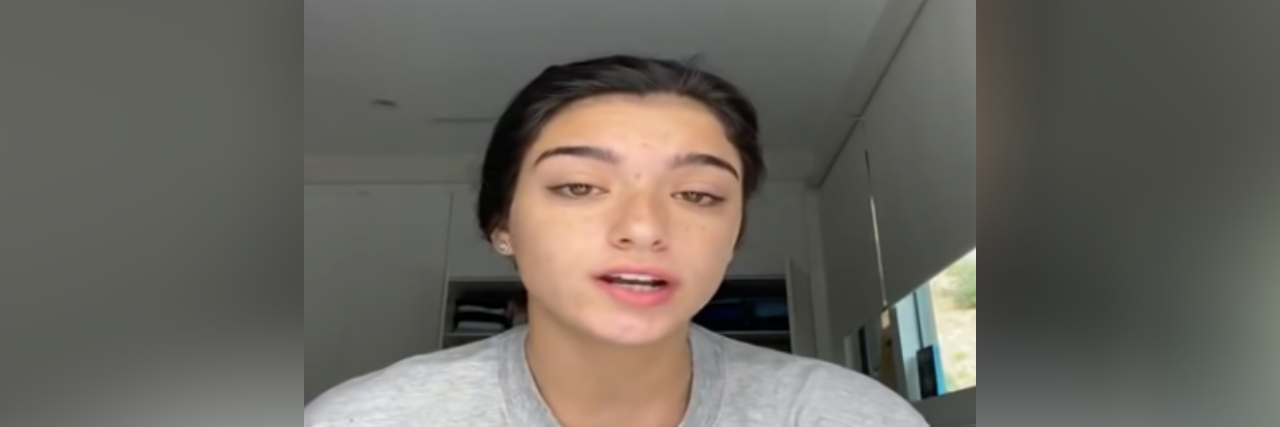TikToker Dixie D'Amelio Reveals She Has Psychogenic Nonepileptic Seizures
What happened; TikTok star Dixie D’Amelio shared that she has psychogenic nonepileptic seizures (PNES) during a TikTok livestream. D’Amelio said in the video that these seizures, which are caused by psychologic factors, led her to be hospitalized and left her on bed rest for five months during her junior year of high school. D’Amelio revealed her PNES diagnosis after accusations surfaced online that she faked her seizures at school.
In my sophomore year in high school, I had very bad anxiety, and it got so bad that I developed psychogenic nonepileptic seizures. I developed a lot more things that come with psychogenic nonepileptic seizures like a stutter. — Dixie D’Amelio
Other relevant stories:
• Is Epilepsy Contagious
• When Was Epilepsy Discovered
• Is Epilepsy Genetic
The Frontlines: PNES are seizures caused by psychological factors as opposed to epilepsy. People with PNES may experience convulsions that resemble tonic-clonic seizures.
- The prevalence rate of PNES is 2-33 per 100,000 people, according to the Epilepsy Foundation.
- PNES may mimic absence seizures or focal impaired awareness (previously called complex partial) seizure
- People can develop PNES for a variety of reasons, including physical or sexual abuse, divorce, grief or a sudden life change.
- Video electroencephalogram (EEG) monitoring is used to diagnose people with PNES.
There are many different symptoms that people with PNES can experience. Here are some of the more common ones:
- Side-to-side shaking of the head
- Bilateral asynchronous movements
- Weeping
- Stuttering
- Arching of back
Get more on chronic illness: Sign up for our weekly chronic illness newsletter.
A Mighty Voice: People with PNES are often dismissed as faking their condition like D’Amelio. Tabitha Johnson wrote an open letter to nurses who accused her of faking her seizures. “Just because I battle something you may not see or understand doesn’t mean I’m faking. Every day I wish I would wake up and realize this was a dream or bad joke. It’s not. I have to eat, sleep and breathe in fear of when the next seizure is going to strike or when my meds will once again throw my blood levels off.” You can submit your first person story, too.
From our community:
Other things to know: Accusing people of faking illness symptoms can be harmful to their mental health and their lives. As D’Amelio explained in her TikTok livestream, the accusations she faced after having PNES episodes led her to go to a new high school. You can read some first-person stories here to understand the toll of being told you’re “faking” a chronic illness or symptoms:
- When Your Doctors (and the Internet) Think You’re Faking It
- What You Can Do If People Pass Judgment About Your Illness
How to take action: If you want to learn more about how to support people with PNES, you can read this article by Sarah Weikel, who also has the condition. You can support D’Amelio by following her on TikTok.
Screenshot viaDixie D’Amelio/TikTok

